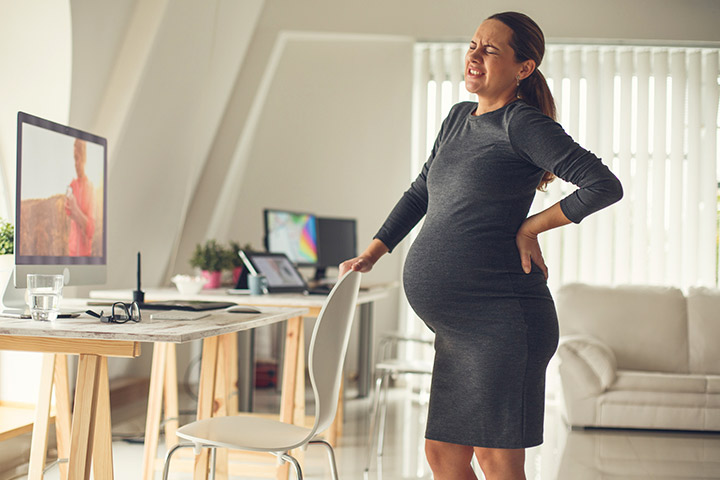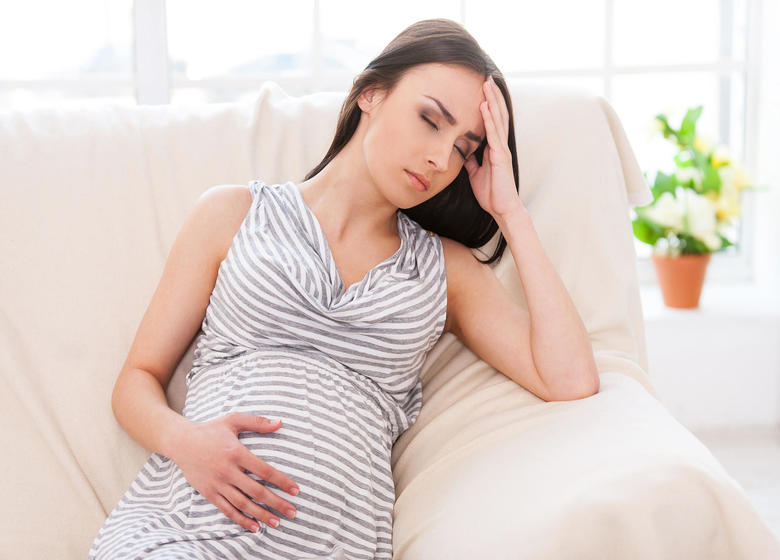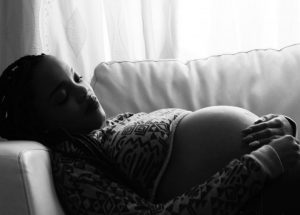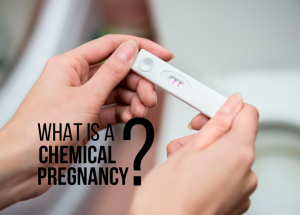The third trimester begins with the 28th week of gestation and ends with the baby’s birth. It’s an exciting time for both the mother-to-be and members of her family. It does carry with it, however, its share of certain big problems associated with pregnancy. There is an article to tell you all about the problems of pregnancy that women may face in their third trimester. Scroll down for the pregnancy complications in the third trimester.
Pregnancy Complications in Third Trimester
Some of the problems pregnant women may face during their third trimester are mentioned below.
1. Premature Labor
It is one of the most common complications of 3rd-trimester pregnancy. If you begin to get contractions before the normal gestation time of pregnancy, that is, 37 weeks, you are considered to be going through premature labor. Women with multiple pregnancies, a history of premature labor during their earlier pregnancies, or those suffering from uterine and cervical disorders are at higher risk of premature labor.
Look out for symptoms such as loose motions, the desire to urinate more often, lower back pain, a tense feeling in the lower abdomen, vaginal discharge, and tightness in the vagina. Some might also feel extremely intense contractions with the vaginal bleeding.
Doctors also prescribe magnesium-sulfate medications to prevent premature labor. In some cases, when labor starts before the 34th week of pregnancy, steroids are given to pregnant women to promote the fetus ‘lung growth.

Image Source – Momjunction
2. Placental Abruption
For some rare cases, the placenta and uterus split just before the start of labor. This condition is called placental abruption. It is a very dangerous condition in which the baby can die inside the womb of the mother. It also induces extreme vaginal bleeding, abdominal pain and contractions and may shock the body.
Although the precise cause of this disorder is unclear. The causes that can raise the risk of placental abruption include diabetes, consuming alcohol and smoking, hypertension, twin pregnancies, a short umbilical cord, drug abuse, mother’s older age, and uterine wall bulging caused by excess amniotic fluid.
3. Preeclampsia
After the 20th week of pregnancy, pregnant women can face this condition. This is a big problem and needs prompt diagnosis. If the right medication is not given on time, it can lead to eclampsia or seizures, kidney failure and, in serious cases, death of the mother and the unborn child.
Preeclampsia signs include elevated blood pressure, urinary protein, swelling of the hands and feet caused by water retention, and excessive weight gain. The expectant mother can in serious cases get headaches, blurry vision, and discomfort in the abdominal region. The medication can vary and depend on how severe the condition is. If you’re past the 37th week, your doctor will automatically call for cesarean delivery. If you are at 34 weeks or less then medication is given to accelerate the fetus ‘lung development.
4. Insomnia
Few pregnant women may encounter insomnia since the very beginning. However, insomnia in the third trimester during pregnancy is more pronounced for most. During the last stage of pregnancy, many women would be unable to get a decent night’s sleep.
The first cause for sleepless nights is the protruding stomach which makes tossing and turning comfortably difficult for pregnant women. The influence of the estrogen hormone, which is more secreted in the last trimester, is another very significant factor. Rather than these, the fetus’ constant movement while sleeping, or the need to clear the bladder often leave women wide awake.
It is recommended not to take the sleeping pills for pregnant women. Women who suffer from insomnia during pregnancy may also meditate just before they go to sleep to calm their minds. They can also listen to some calming music or get some essential oils such as lavender, chamomile or sandalwood massage. They will turn to their left side and prop some pillows between their legs and under their stomach to provide support and warmth for their body.

Image Source – thirdage.com
5. Depression
Depression can set in from the early days of pregnancy, like insomnia. Most mothers-to-be, however, begin feeling it from the third trimester, and for many, it may persist after birth. This is largely a result of hormonal changes. Prenatal depression may result in a baby’s low birth weight, as the mother can lose appetite and suffer from extreme fatigue due to inadequate rest.
Taking anti-depressants during pregnancy is harmful. Consider reducing the stress by meditation and prenatal yoga. You can also read healthy and encouraging books to calm you down and listen to calming music.
6. Deep Vein Thrombosis
A swollen leg is common in the third trimester but does it also cause pain to you? If the response is yes, then deep vein thrombosis (DVT) may affect you. During this condition, a blood clot forms a lesion in a portion of the vein. These lesions can become harmful if they grow large because they can block blood flow. When you see any signs of DVT (pain, redness or discoloration on the leg, or a sensation of warmth), see your doctor immediately. Even during pregnancy, it can be treated with medicine.
7. Breathing Problems
Breathing issues during the third trimester of pregnancy are primarily attributed to uterine expansion. Because the abdomen bulges, the lungs have less space to expand and therefore find it difficult for the woman to breathe. It can be taken care of by elevating more pillows on the head and shoulders.
8. Gestational Diabetes
Because of hormonal shifts, the body can not be able to use insulin effectively during pregnancy. Blood sugar levels are starting to increase as a result. Although this poses no danger to the mother, it can be harmful to the growing fetus inside. This disorder contributes to the premature growth of the fetus which may require the delivery of a cesarean. The expectant mother’s only way of preventing or fighting gestational diabetes is through lifestyle changes.
These are 8 pregnancy complications in the third trimester.
The third trimester is important for you and your unborn infant and maybe a difficult time. Don’t stress yourself about it though. Stress will only heighten the complications of your pregnancy. However, do not forget to speak to your doctor immediately if you encounter signs of any of the above conditions.













